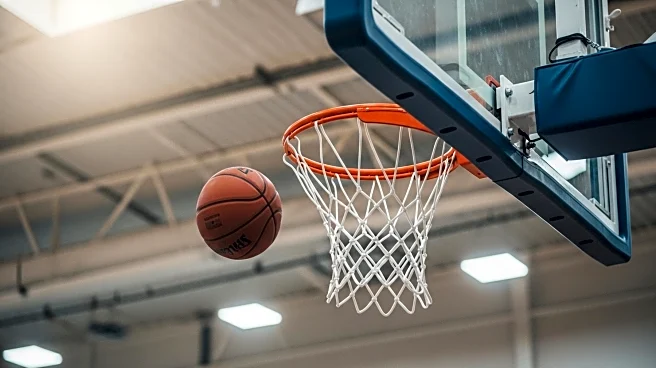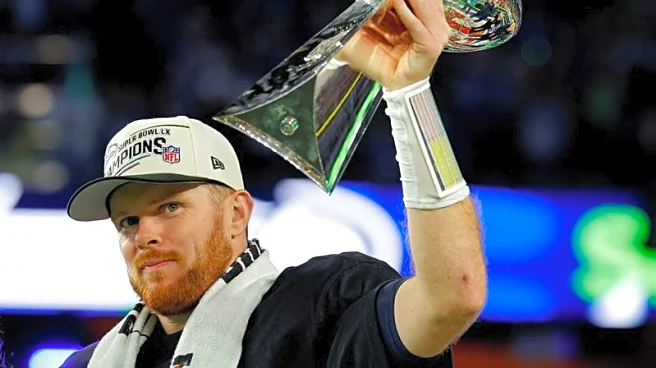What's Happening?
Florida has officially reinstated Vernon Maxwell's college basketball statistics, restoring him as the program's all-time leading scorer. Maxwell's stats were previously removed due to an NCAA investigation that led to the Gators vacating several tournament victories. Athletic director Scott Stricklin advocated for the reinstatement, which was finalized this week. Maxwell, who played for Florida from 1985 to 1989, scored 2,450 points during his college career, leading the team to its first NCAA Tournament appearance in 1987. The reinstatement places Maxwell ahead of Ronnie Williams and third in SEC history, behind Pete Maravich and Allan Houston.
Why It's Important?
The reinstatement of Vernon Maxwell's records is significant for Florida's basketball legacy, as it restores the achievements of one of its most prominent players. This decision reflects a broader trend in sports where historical records are being revisited and corrected. It also highlights the impact of NCAA investigations on athletes' legacies and the importance of preserving sports history accurately. Maxwell's restored status may inspire current and future athletes, emphasizing the value of perseverance and recognition despite past controversies.
What's Next?
Maxwell will celebrate the reinstatement with a reunion involving friends, family, and former teammates. This event may serve as a platform for further discussions on the implications of NCAA investigations and the process of record restoration. The decision could prompt other institutions to review similar cases, potentially leading to more athletes having their records reinstated. Stakeholders in college sports might also consider revising policies to ensure fair treatment of athletes' historical achievements.
Beyond the Headlines
The restoration of Maxwell's records raises ethical questions about the balance between institutional accountability and individual recognition. It underscores the complexities involved in NCAA investigations and their long-term effects on athletes' careers. This development may influence cultural perceptions of sports history, encouraging a more nuanced understanding of past controversies and their resolutions. It also highlights the role of social media in shaping public narratives and facilitating reconciliation.










